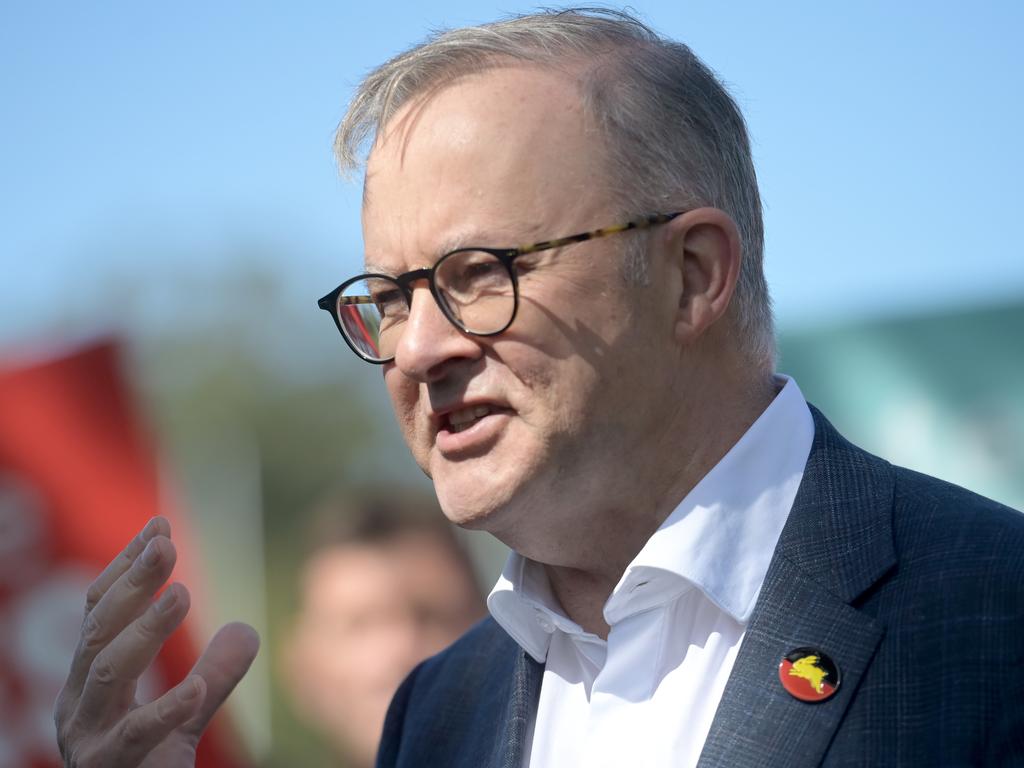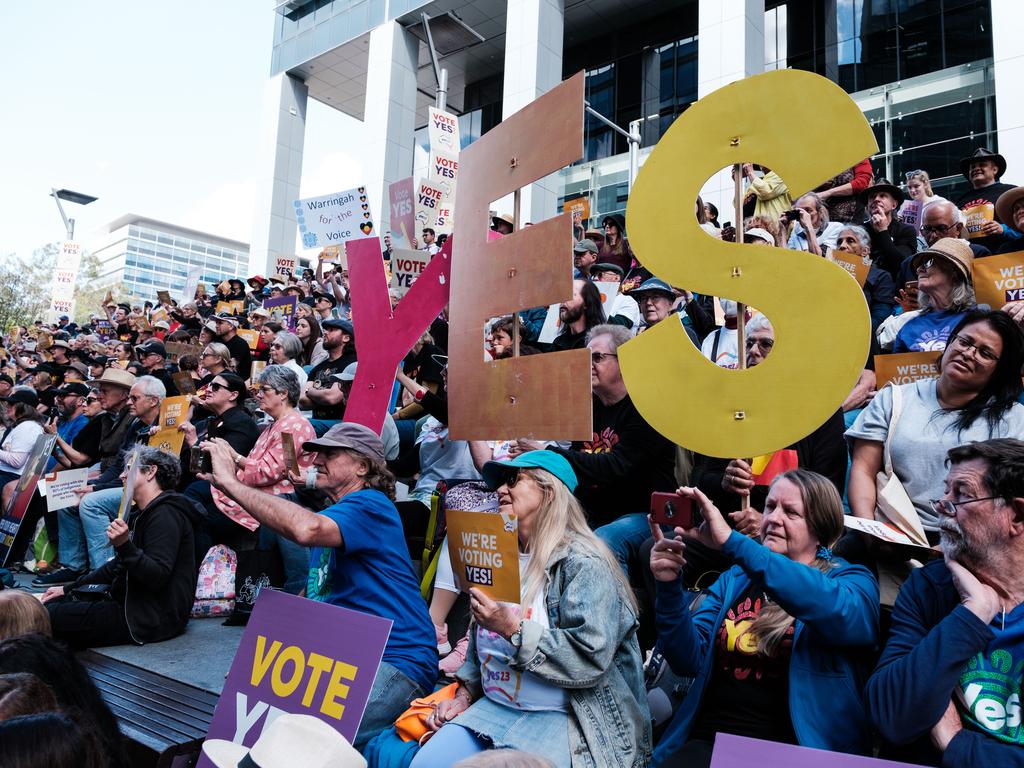Voice holds promise of hope for our most vulnerable


The constitutional referendum proposed is both an act of recognition of Aboriginal and Torres Strait Islander Australians as the first people of this continent with respect for their 60,000 years of continuing culture and also the establishment of a mechanism to improve policy outcomes.
This is a chance to forge a new partnership between Indigenous and non-Indigenous Australians. It was initiated in 2017 through the Uluru Statement from the Heart by the First Nations people, who seek only to be listened to about policy that holds the chance of higher living standards and equality of opportunity.
Nobody can deny that when you look at the life expectancy of Indigenous and non-Indigenous Australians there is a significant gap. When you measure education, health, housing, employment, incarceration or safety outcomes, the need to alleviate entrenched disadvantage is evident. These statistics are written in human misery.
The failure to close this gap shames us all. It is time for a new way forward.
The genius of the proposed advisory body to policymakers – both the parliament and the executive government – is that it provides for innovation as well as responsibility.
What the advisory body to be called a voice will achieve is agency and accountability. It means we can bring Indigenous Australians, via their chosen representatives, to the table with the decision-makers. They can explain, based on consultation with their communities and their experiences, what works and what does not.
This will ensure that vast sums of money expended to programs for Indigenous communities are better spent. There will be greater transparency about the policymaking process concerning Indigenous Australians.
While policy decisions will rightly remain the duty of governments, they will make more informed decisions.

The voice would be made up of Indigenous Australians, chosen by their communities, with gender balance and across generations. It would be able only to “make representations” to – that is, advise – parliament and government on matters that relate to Indigenous Australians. The parliament and the government also may ask the voice for advice. Whether this advice is followed will depend, as ever, on the quality of it.
The High Court would not be overrun with legal challenges if the advice was not followed. As former chief justice Robert French has said, this risk is very low. The only issue is whether the advice was listened to, not whether it was followed.
French carries significant weight and makes a mockery of those who claim the voice would clog courts in litigation.
Neither is the voice a threat to the supremacy and sovereignty of parliament. A successful referendum would provide for a new head of power in the Constitution that simply says there must be an Indigenous advisory body. But it is up to the parliament to determine its “composition, functions, powers and procedures”.
The voice would have no veto power over laws or programs. It would not be able to raise or spend money – other than to undertake research, consult and provide advice – nor would it have a service or program delivery role.
If the parliament did not like how the voice was operating, then it could be abolished and a new body set up with different members, operations and processes.
The proposed change does not inject race into the Constitution or divide Australians. This is a message propagated by the No campaign and reactionary conservatives.
The Constitution already has race powers in sections 51 (xxvi) and 25. We have long recognised the special status of First Nations Australians in legal judgments, laws and programs. This is not about race but about indigeneity.
A Yes vote gives hope, opportunity and agency to the pressing need to close the gap between Indigenous and non-Indigenous Australians.

A No vote gets us nowhere. The No camp has not put forward an agreed, coherent or compelling alternative plan to improve policy outcomes for Indigenous Australians that also fosters responsibility and accountability. It is confused and divided on questions of recognition, treaties and advisory bodies.
This is not the first referendum on constitutional recognition. In November 1999, John Howard proposed a preamble to the Constitution that included “honouring Aborigines and Torres Strait Islanders, the nation’s first people, for their deep kinship with their lands and for their ancient and continuing cultures which enrich the life of our country”. It overwhelmingly was rejected with 60.66 per cent voting No.
The referendum to be determined on Saturday holds the promise of real change rather than only rhetoric. It is symbolic, providing recognition of the First Australians, but it is also practical in that it establishes a body tasked with providing advice on how to improve policy outcomes.
There is a yearning deep within the Australian soul for reconciliation. There is, as Noel Pearson says, a whispering in our hearts about unfinished business.
We have an opportunity, with the eyes of the world on us and our consciences telling us there is another way. These are the better angels of our nature and it is time we heed their call.
In the final analysis, constitutional recognition of Indigenous Australians through a voice to parliament is a sensible, logical and rational step for a mature nation. It is not radical or revolutionary. It is modest, simple and straightforward.
If we vote Yes, it can make a real difference. If we vote No, nothing will change. We have two paths ahead of us. We must take the right one and vote Yes.






Australia faces a moment in history where the decision we make about whether to recognise Indigenous Australians in the Constitution with an advisory body to parliament and government will have profound implications for this generation and the next.